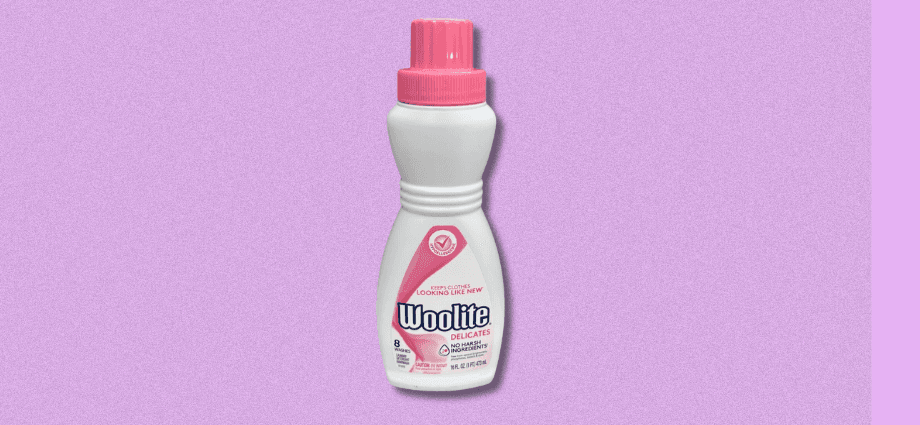Caring for delicate fabrics is crucial if you want your garments to retain their softness, color, and overall quality. Delicate fabrics, such as silk, wool, cashmere, and lace, require more attention during washing, drying, and storing than your regular clothing. These materials are prized for their luxurious feel, and with the right care, you can make sure they remain beautiful and functional for years. Understanding the specific needs of these fabrics and learning the correct methods to maintain them will help preserve their longevity and appearance.
Understanding Delicate Fabrics
Before diving into the specifics of care, it’s important to understand what makes certain fabrics delicate. Delicate fabrics are often lightweight, thin, and fragile, making them more susceptible to damage. Their fibers are often finer, and the construction of the fabric is intricate, which contributes to their need for careful handling.
- Silk: Silk is one of the most luxurious fabrics, known for its smooth texture and natural sheen. However, it is prone to staining and can lose its shine when exposed to harsh chemicals or hot water. Silk should be handled with care when washing and drying, as it is sensitive to heat.
- Wool: Wool is durable but also delicate due to its ability to shrink and stretch. It should never be exposed to hot water or the high heat of a dryer. Wool garments must be washed carefully, preferably by hand, and laid flat to dry to avoid misshaping.
- Lace: Lace is a beautiful, intricate fabric, often used for decorative elements in clothing. However, its delicate threads can easily break or become damaged when subjected to rough handling, so it requires gentle washing and storing.
- Cashmere: Known for its softness, cashmere can lose its texture if washed incorrectly. It is important to avoid harsh detergents or hot water and always air dry cashmere items to preserve their softness and shape.
Why Delicate Fabrics Need Extra Care
The primary reason why delicate fabrics need extra care is their fragility. These fabrics are made of thinner, more refined fibers that are easily damaged by improper washing or drying. Washing delicate items in hot water can cause shrinkage, while using harsh detergents or rough fabrics can cause pilling, fading, or stretching. Drying delicate garments improperly, either by using high heat or hanging them in the sun, can distort their shape or cause them to lose their texture.
Additionally, delicate fabrics often come with higher price tags, meaning proper care is an investment in preserving your garments for longer use. With gentle handling, delicate fabrics can maintain their original beauty, feel, and texture, offering you more value for your purchase.
Washing Delicate Fabrics Safely
When it comes to washing delicate fabrics, using the correct method can make all the difference. Here are some helpful guidelines for both handwashing and machine washing delicate items:
Handwashing Delicate Fabrics
Handwashing is the gentlest way to clean delicate fabrics, as it allows for full control over the temperature and handling. Follow these tips to handwash delicate garments safely:
- Use lukewarm water: Avoid using hot water, as it can damage delicate fibers and lead to shrinking or fading.
- Choose a mild detergent: Opt for a detergent made specifically for delicate fabrics, which is gentle on fibers and prevents color loss.
- Avoid wringing or twisting: Gently agitate the fabric in the water and press out the excess liquid by pressing the fabric between two towels—never twist or wring it, as this can distort its shape.
Handwashing is an excellent option for garments like silk blouses or cashmere sweaters that require extra care. Take your time with the process and be gentle to preserve the fabric’s integrity.
Detergents for Delicates Fabrics
The Laundress Delicate Wash

Specially formulated for delicate fabrics like silk, wool, and lace. This detergent is gentle yet effective, preserving the softness and integrity of your garments while maintaining their vibrant colors.
Woolite Delicates Laundry Detergent
A trusted brand for washing delicate fabrics. Woolite is designed to clean gently while protecting the fibers of materials like cashmere, wool, and silk from fading, stretching, or shrinking.

Machine Washing Delicate Fabrics
If you prefer using a washing machine, be sure to choose the right settings. Many modern washers come with a “delicate” or “gentle” cycle designed for more fragile garments. Here’s what you can do:
- Use a laundry bag: Place delicate fabrics in a mesh laundry bag to avoid friction with other items in the machine, reducing the risk of snags or tears.
- Cold water: Always wash delicate fabrics with cold water to minimize the risk of shrinking or fading.
- Low-spin cycle: Use the slowest spin speed to prevent the fabric from stretching or losing its shape.
Machine washing can be effective for items like certain types of wool or polyester blends, but it’s always a good idea to double-check the garment care labels.
Drying Delicate Fabrics Without Damage
Drying delicate fabrics requires care to ensure they don’t lose their shape or softness. Here’s how you can dry different types of delicate fabrics:
Air Drying Delicate Fabrics
The safest way to dry delicate fabrics is by air drying. This method prevents the use of heat, which can be damaging to fine fabrics. Follow these guidelines:
- Lay flat to dry: For fabrics like wool, cashmere, and lace, always lay them flat on a towel or drying rack to help them retain their shape.
- Avoid hanging: Hanging delicate fabrics, especially wool or silk, can stretch or distort their structure. Always opt for flat drying to prevent this.
Air drying is the best method for most delicate fabrics. It allows for slow, natural drying and helps avoid the damage caused by heat.
Using a Dryer for Delicate Fabrics
If you do need to use a dryer, ensure that it is set to the lowest heat or a no-heat option, depending on the fabric. Many dryers now have a “delicate” cycle, which is gentle and reduces the chances of heat damage. However, not all fabrics can handle even low heat. Fabrics like silk and lace should always be air-dried, while cotton blends may be able to tolerate light drying.
- Use the lowest heat setting: Always choose the coolest or no-heat cycle to avoid shrinking or fading.
- Check the fabric: Regularly check the garment to ensure it doesn’t over-dry or lose its shape.
Storing Delicate Fabrics Properly
Storing delicate fabrics is just as important as washing and drying them properly. Poor storage practices can cause damage over time, such as stretching, fading, or attracting pests.
Storing Silk, Wool, and Cashmere
- Silk: Store silk garments away from direct sunlight, as it can fade over time. Use padded hangers to maintain the shape of garments like silk dresses or blouses.
- Wool: Always store wool sweaters and cardigans in a breathable garment bag to protect them from dust and moths. Wool should be folded, never hung, to prevent stretching.
- Cashmere: Just like wool, cashmere should be stored flat. Use a storage bag made of breathable material to keep your cashmere soft and fresh.
For fabrics like lace, ensure they are stored in a safe area where they won’t get snagged on anything sharp or rough.
Repairing Delicate Fabrics
Even with the best care, delicate fabrics may require minor repairs from time to time. Here are some easy fixes you can do at home:
- Fixing small holes: Use a fine needle and thread that matches the color of the fabric. Gently stitch the hole closed without tugging too hard on the fabric.
- Removing loose threads: Snip loose threads carefully with sharp scissors to avoid creating larger holes. Don’t pull the thread as this could cause the fabric to tear.
- Dealing with pilling: Pilling occurs on fabrics like cashmere and wool when fibers start to rub together. Use a fabric shaver to gently remove the pills.
For more significant damage, such as a large tear or a stretched-out piece, consider seeking professional repair services.
Conclusion
Proper care for delicate fabrics can extend the life of your garments, preserving their softness, texture, and color. By washing delicate fabrics with care, drying them properly, and storing them correctly, you can ensure that these fabrics remain in excellent condition for years. Whether it’s silk, wool, cashmere, or lace, each fabric has specific needs that require attention. Regular maintenance, such as gentle handwashing, air drying, and proper storage, will help your delicate garments maintain their luxurious appeal.



